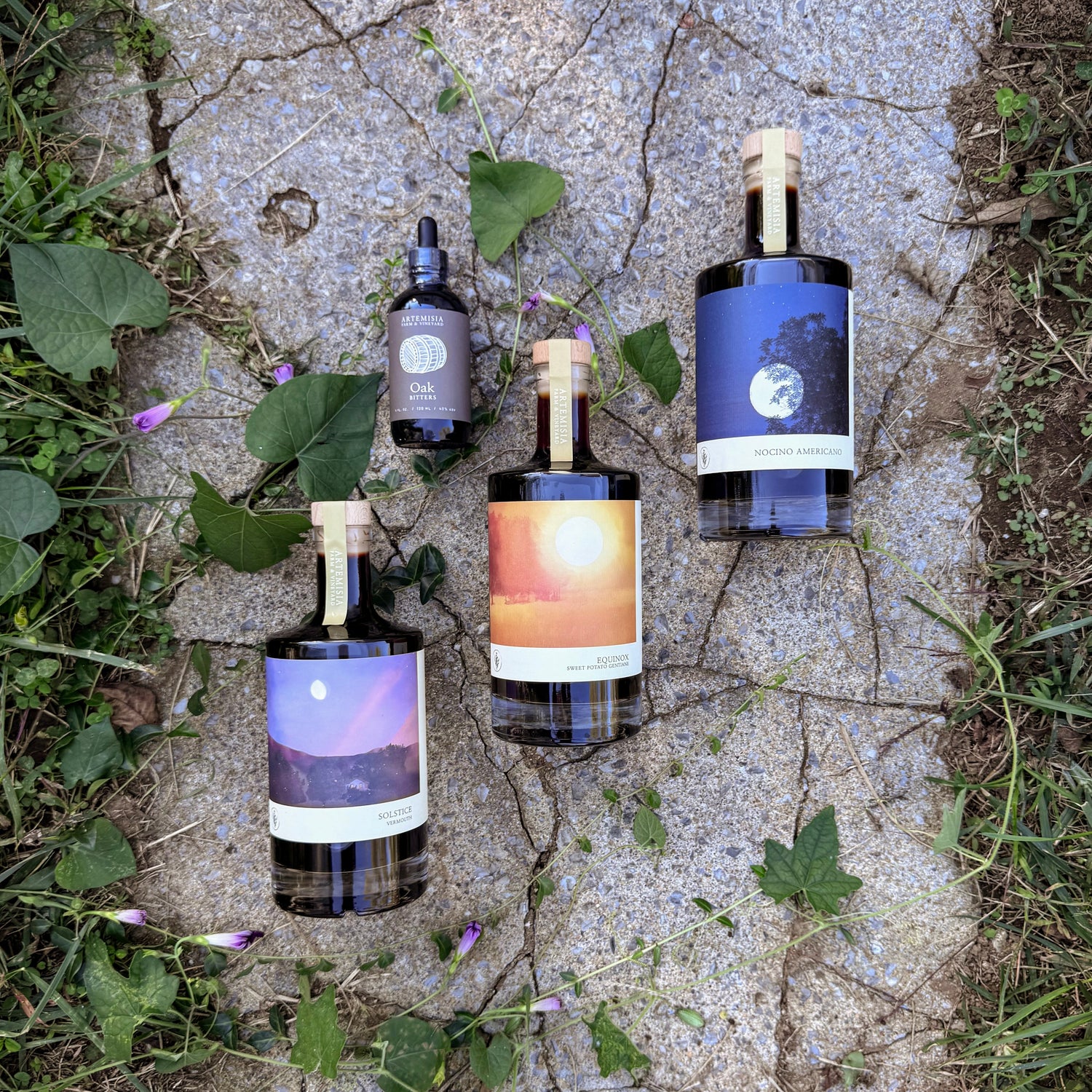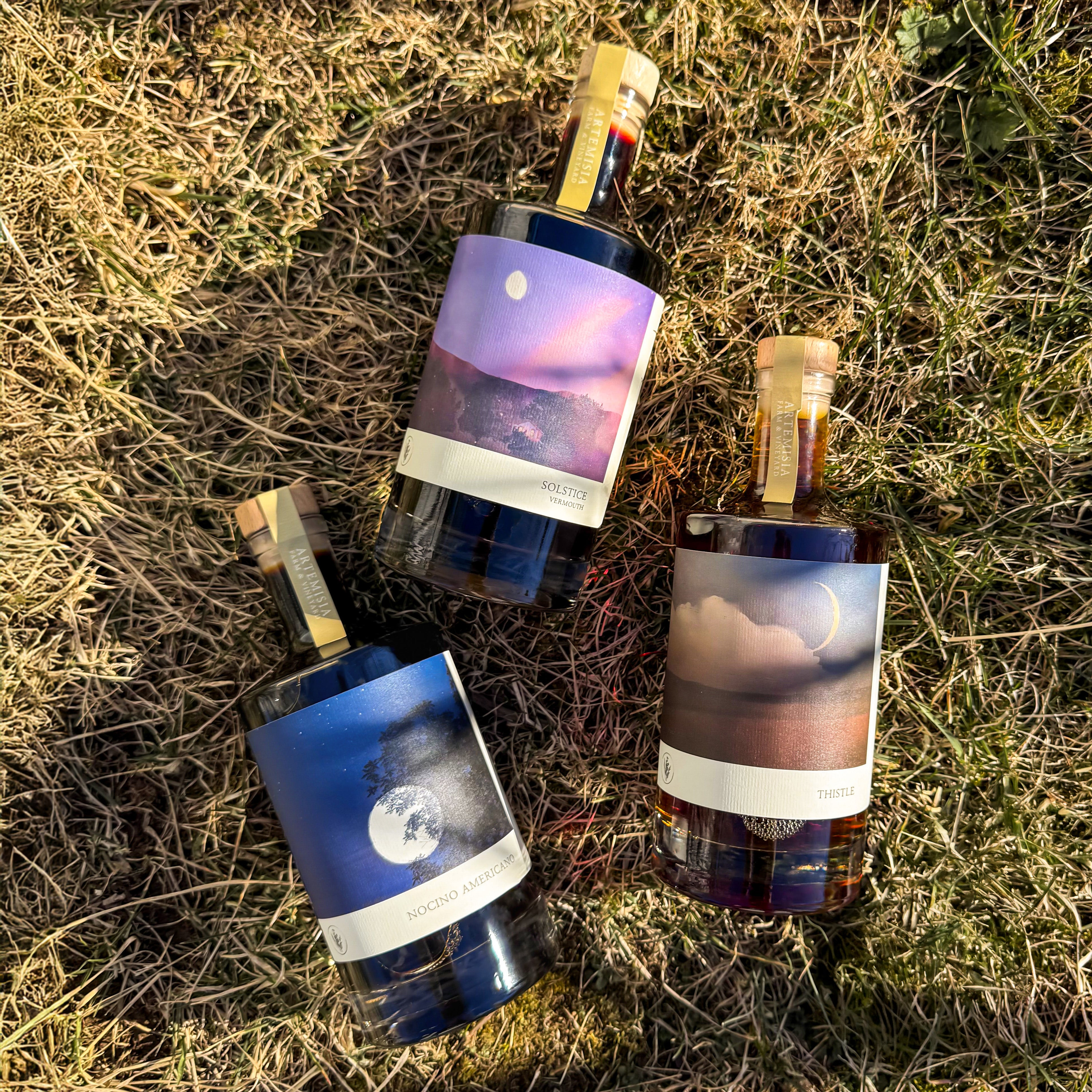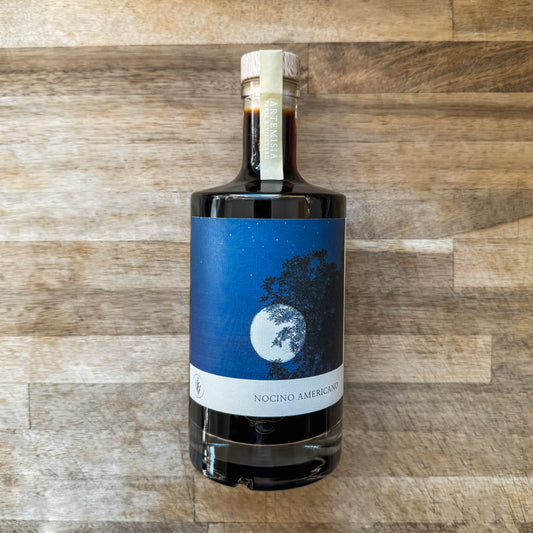Currently Available Wines
-
Nocino Americano 2023
Regular price $49.99Regular priceUnit price per

Wine Club
Be first to receive our latest creations, delivered to your door.
How it Works
Twice-yearly delivery of our newest botanical wines and bitters. Each shipment comes with production information for each bottle, as well as recipe cards created by yours truly.
Extra Savings & Benefits
Wine Club Members get first access to new and limited-release bottles. Members also get 10% off the wines & bitters in each release, as well as for any bottle orders throughout the year.
Shipping now available to most U.S. States
Tastings & Purchases
Tastings Farmers Markets
Visit us at farmers markets and special events to taste or purchase these wines.
You can also now place an order for Pickup at the Farmers Market.
We cannot currently accept visitors to the farm or vineyard.
Shipping
Our wines & bitters are now available for shipping in most states.
Local Delivery
We deliver to locations throughout northern Virginia & DC. We deliver to different regions on different days. To find your region, select to view the map below and enter your address.
Or, if we are not currently delivering to your location and you are interested, please reach out to us and we can see if we can make a change to our routes.
Search for your Address in Google Map
Delivery Schedule
Yellow Region |
Wednesdays |
Red Region |
Thursdays |
Blue Region |
Fridays |
In Shops & Restaurants
You may be able to find our products at your local wine shop, restaurant, or cocktail bar throughout Virginia, Washington DC, and parts of Maryland.
In particular, Domestique, The Whole Ox, Crystal City Wine Shop, The Wool Factory, Field & Main, and Oyster Oyster have all been strong supporters of us.
If you are a shop or restaurant interested in our products, please contact Williams Corner Wine.
About The Wines
-
-
Previous Batches
Cellar Archive


